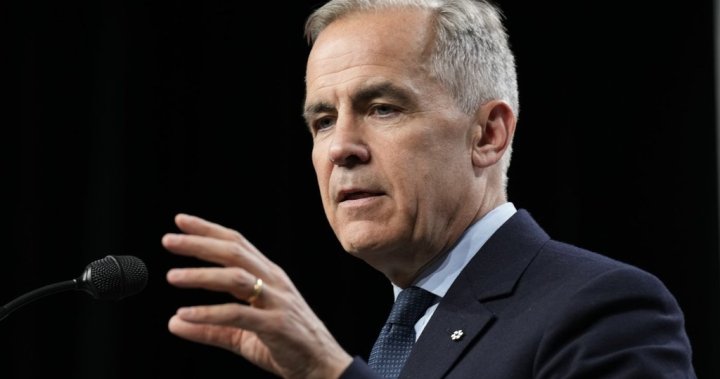The federal government announced sweeping counter-measures today in response to President Donald Trump’s decision to reimpose tariffs on Canadian steel and aluminum, marking a sharp escalation in trade tensions just weeks after his election victory.
Deputy Prime Minister Chrystia Freeland revealed the response package during an afternoon press conference on Parliament Hill, flanked by industry representatives from across the country.
“We will not sit idly by while Canadian workers and communities face unjustified economic harm,” Freeland stated firmly. “These measured but decisive actions demonstrate our commitment to defending Canadian interests while maintaining our preference for dialogue and cooperation.”
The counter-measures include tariffs matching the 10 percent on aluminum and 25 percent on steel that Trump has promised to implement when he takes office in January. Ottawa’s response targets approximately $1.7 billion in American imports, focusing primarily on products from Republican-led states.
The announcement comes after days of intense consultations between federal officials and industry stakeholders. At Algoma Steel in Sault Ste. Marie, where I visited last week, workers expressed deep concern about potential job losses. Plant manager Jennifer Richardson told me the tariffs could threaten up to 200 positions at their facility alone.
“We’ve been down this road before,” Richardson said, referring to the previous round of Trump tariffs in 2018. “Our communities can’t afford this kind of economic uncertainty again.”
The Canadian Steel Producers Association estimates the tariffs could impact more than 23,000 direct jobs across the country and threaten billions in annual economic activity. Association President Catherine Cobden praised the government’s swift response but cautioned that prolonged trade friction would harm both countries.
Economic analysts suggest the timing of Trump’s announcement – coming amid holiday season manufacturing and before his official return to office – appears calculated to maximize uncertainty in global markets.
“This is fundamentally about politics, not economics,” explained Carleton University trade policy expert Michael Wilson. “The economic data simply doesn’t support claims that Canadian steel threatens American national security.”
The “national security” justification for the tariffs has particularly rankled Canadian officials, who point to deeply integrated defense supply chains between the two countries. Defense Minister Bill Blair emphasized this point, noting that Canadian aluminum is essential for American military aircraft production.
“Our defense industrial bases are not competitors – they are partners,” Blair remarked during a separate media availability.
On Parliament Hill, reaction split along partisan lines. Conservative trade critic Kyle Matthews questioned whether the Liberal government had been properly prepared for Trump’s return to office.
“This administration has had four years to develop a strategy for dealing with Trump’s protectionist tendencies,” Matthews said. “Canadian workers deserve better planning and foresight.”
NDP leader Jagmeet Singh, meanwhile, called for additional support measures for affected workers, proposing emergency benefits and retraining programs to help those impacted by potential plant closures or production cuts.
In communities like Hamilton, where steel has been the economic backbone for generations, anxiety runs high. Walking through the city’s industrial district yesterday, I spoke with third-generation steelworker James Thompson, who expressed frustration at being caught in international power politics.
“My grandfather, my father, and now me – we’ve all made honest livings producing quality steel,” Thompson said. “Now we’re bargaining chips in some political game.”
Industry experts note that Canadian steel and aluminum production meets or exceeds American environmental standards, making the tariffs particularly counterproductive from a climate perspective. The Canada Aluminum Association highlighted that Canadian aluminum production generates about one-tenth the carbon emissions of Chinese alternatives.
American business groups have also criticized the tariffs. The U.S. Chamber of Commerce issued a statement warning that the measures would raise costs for American manufacturers and consumers while disrupting critical supply chains.
For small businesses in the supply chain, the uncertainty proves especially challenging. Ottawa-based machine shop owner Lisa Patel, who supplies precision components to aluminum fabricators, told me she’s already seeing customers delay orders.
“We employ 23 people here, and every one of those jobs depends on stable, predictable trade,” Patel explained as we toured her facility. “This kind of disruption makes it impossible to plan.”
Government officials emphasized that diplomatic channels remain open, with both Prime Minister Justin Trudeau and Freeland reaching out to counterparts in the incoming Trump administration. Sources familiar with the discussions suggest Canadian officials are proposing alternative arrangements, including voluntary export limits or joint monitoring mechanisms.
For now, however, Canada appears prepared for extended trade friction. The Finance Department has established a $300 million support fund for affected industries and communities, while Export Development Canada will offer enhanced credit guarantees for companies seeking new markets.
As snow fell outside the aluminum processing facility in Shawinigan I visited earlier this week, plant manager Robert Tremblay perhaps best summarized the mood: “We’ve weathered storms before. We’ll weather this one too. But make no mistake – there will be damage.”







